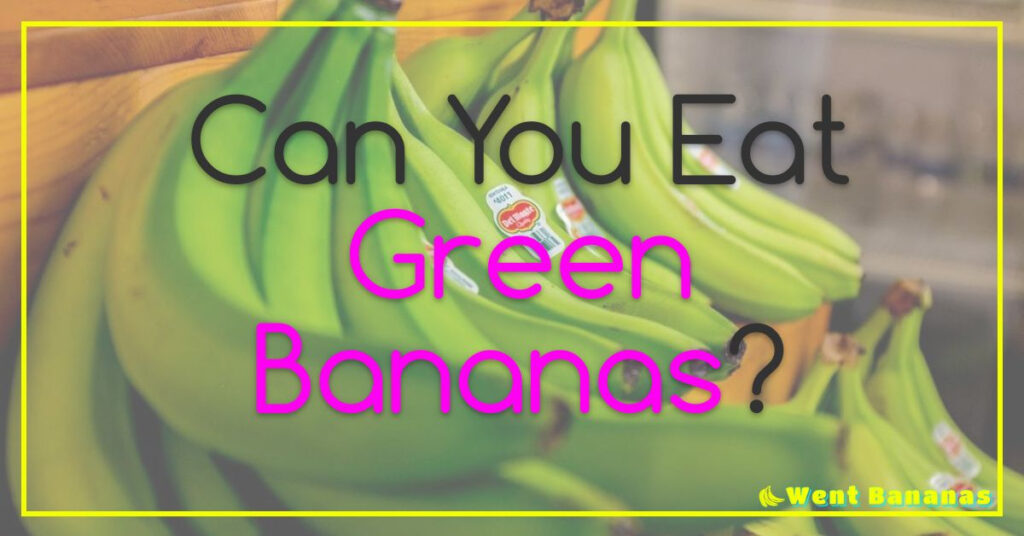Everything You Need to Know About Eating Brown Bananas: Risks, Benefits, and More
Bananas are a popular fruit enjoyed by people around the world, and while they are typically consumed when they are still yellow, many people wonder whether it is okay to eat brown bananas. In this article, we will examine the question of whether brown bananas are safe to eat and what causes bananas to turn brown. We will also explore the nutritional value of ripe bananas, the risks and benefits of consuming brown bananas, and provide tips for safely consuming them. For those looking to learn more about bananas and their ripening process, read on!
What causes bananas to turn brown?
Bananas are a beloved fruit, but have you ever wondered why they turn brown? The answer lies in a natural process called enzymatic browning.
When a banana is injured or exposed to air, an enzyme called polyphenol oxidase (PPO) reacts with phenolic compounds naturally present in the fruit. This reaction produces melanin, the same pigment responsible for skin color in humans. As more melanin is produced, the banana begins to turn brown.

Factors such as temperature and humidity can also affect how quickly bananas turn brown. High temperatures and humid environments accelerate the enzymatic browning process.
While some may find brown bananas unappetizing, they are actually sweeter and softer than their yellow counterparts due to the breakdown of starch into sugar. In fact, many banana bread recipes call for overripe bananas because of their enhanced sweetness.
So next time you see a brown banana, don’t be so quick to toss it out – it’s still perfectly good to eat! And now that you know why they turn brown, you can impress your friends with your newfound knowledge about this fascinating fruit phenomenon.
The nutritional value of ripe bananas is high.
Ripe bananas are not only delicious but also packed with essential nutrients that can benefit your overall health. As bananas ripen, their nutritional value increases, making them a great addition to your daily diet.
One of the key nutrients found in ripe bananas is potassium, which plays a vital role in maintaining healthy blood pressure levels and supporting proper muscle and nerve function. Additionally, ripe bananas are an excellent source of dietary fiber, which can help regulate digestion and promote feelings of fullness.
But the benefits don’t stop there. Ripe bananas also contain high levels of vitamin C and vitamin B6, both of which have been shown to support immune system function and improve brain health.
Moreover, recent studies suggest that ripe bananas may even provide antioxidant benefits thanks to their high concentration of phenolic compounds. These powerful antioxidants may be particularly beneficial for reducing inflammation and protecting against chronic diseases such as cancer.
So if you’re looking for a nutritious snack or ingredient to add to your meals, consider incorporating more ripe bananas into your diet. Not only do they taste great but they also offer a wealth of health benefits that you won’t want to miss out on!
The risks and benefits of consuming brown bananas.
Brown bananas are a common sight in any household, but they often raise questions about their safety and nutritional value. While the risks of consuming brown bananas may seem minimal, they are not entirely negligible.
Brown bananas result from the process of ripening, during which the fruit’s starch breaks down into simple sugars. This process also leads to a change in texture and color, making brown bananas softer and sweeter than their yellow counterparts.

One potential risk associated with consuming brown bananas is that they may contain higher levels of a harmful substance called acrylamide. Acrylamide forms when foods with high levels of certain amino acids are cooked at high temperatures. This compound has been linked to an increased risk of cancer and neurological damage.
On the other hand, there are also benefits to consuming brown bananas. For instance, these fruits contain more antioxidants than unripe ones due to their higher sugar content. Antioxidants help protect cells from oxidative stress caused by free radicals that can lead to chronic diseases such as cancer and heart disease.
Furthermore, brown bananas may have a lower glycemic index (GI) than yellow ones because their starch has converted into sugar during ripening. A lower GI means that the body absorbs glucose more slowly, which can help regulate blood sugar levels and prevent insulin spikes.
In conclusion, while there are potential risks associated with consuming brown bananas such as acrylamide formation; benefits such as increased antioxidant content and lower GI make them worthwhile for consumption in moderation. It is important for individuals who consume these fruits regularly to be aware of both the risks and benefits so they can make informed decisions about their diet choices.
Tips for safely consuming brown bananas.
Brown bananas may not look as appealing as their yellow counterparts, but they can still be consumed safely if handled properly. Here are some tips to keep in mind when consuming brown bananas:
1. Check for Mold: Brown bananas may sometimes develop mold, which can be harmful if ingested. Always inspect the banana thoroughly before consumption.

« if banana is apple apple is grapes
The Ultimate Guide to Knowing When Your Banana Bread is Done: Tips and Tricks for Perfect Baking! »
2. Store in a Cool and Dry Place: Brown bananas tend to ripen quickly and spoil faster than yellow ones. It is recommended that you store them in a cool and dry place, away from direct sunlight.
3. Peel Carefully: The texture of brown bananas may be softer than yellow ones, making them more prone to mushiness or bruising when peeled. Take extra care when peeling the banana to avoid any unwanted bruising or damage.
4. Use in Recipes: If you are not comfortable consuming ripe brown bananas on their own, consider using them in recipes like banana bread or smoothies where their soft texture works perfectly.
5. Freeze for Later Use: If you have excess ripe brown bananas that you cannot consume right away, consider freezing them for later use in baking or smoothies.
By following these tips, you can safely consume brown bananas without worrying about any health risks while also reducing food waste!
Check out our other articles to find out even more about banana.
In conclusion, it’s generally safe to eat a brown banana as long as you take certain safety precautions. Brown bananas can still offer plenty of nutritional benefits and they can be used in recipes like muffins or smoothies. So if you’re looking for ways to utilize your browning bananas consider giving them a chance! Want to learn even more about this delicious fruit? Check out our other articles to find out even more about banana.











